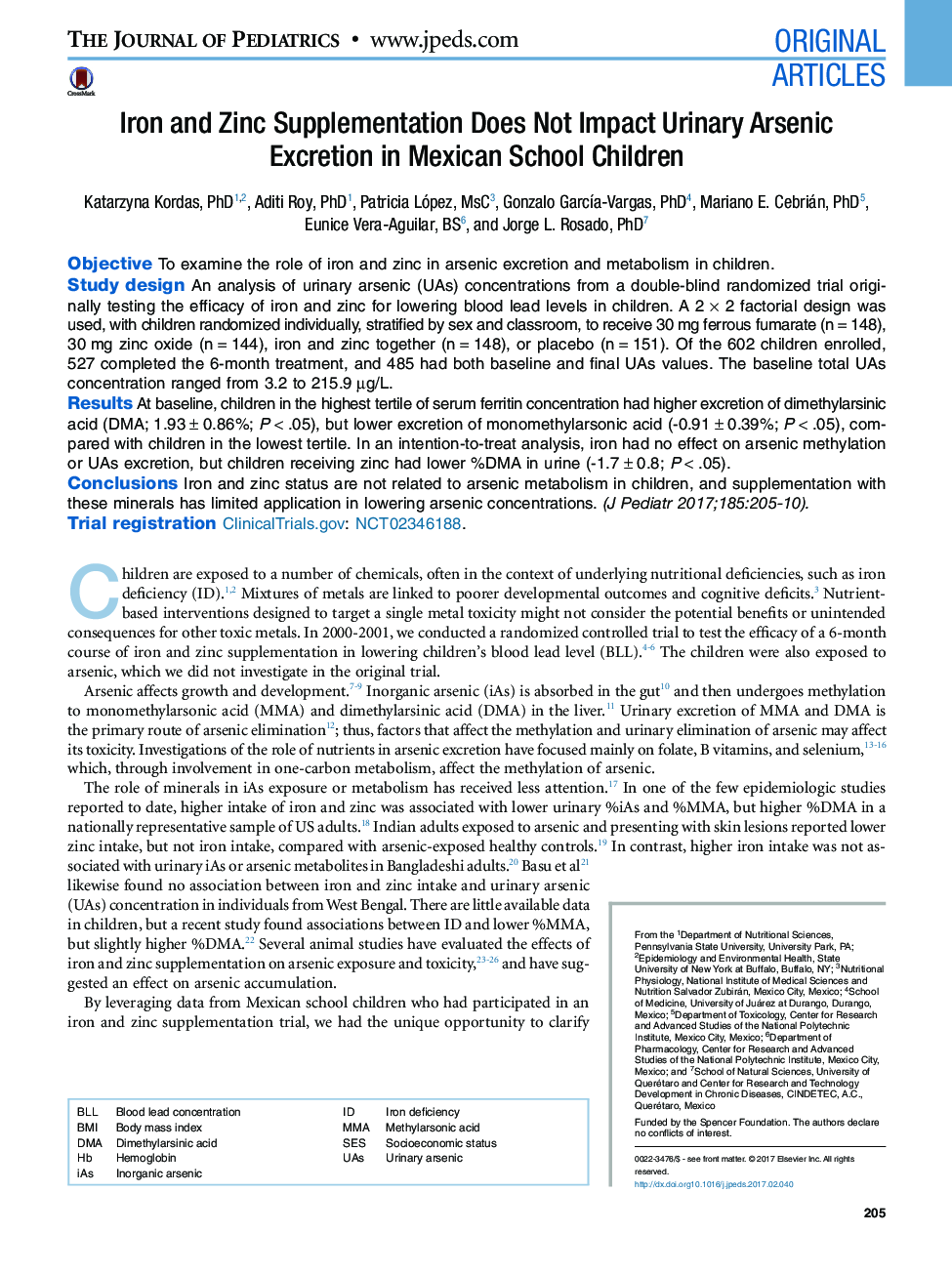| کد مقاله | کد نشریه | سال انتشار | مقاله انگلیسی | نسخه تمام متن |
|---|---|---|---|---|
| 5719140 | 1607413 | 2017 | 7 صفحه PDF | دانلود رایگان |
ObjectiveTo examine the role of iron and zinc in arsenic excretion and metabolism in children.Study designAn analysis of urinary arsenic (UAs) concentrations from a double-blind randomized trial originally testing the efficacy of iron and zinc for lowering blood lead levels in children. A 2 à 2 factorial design was used, with children randomized individually, stratified by sex and classroom, to receive 30âmg ferrous fumarate (nâ=â148), 30âmg zinc oxide (nâ=â144), iron and zinc together (nâ=â148), or placebo (nâ=â151). Of the 602 children enrolled, 527 completed the 6-month treatment, and 485 had both baseline and final UAs values. The baseline total UAs concentration ranged from 3.2 to 215.9âµg/L.ResultsAt baseline, children in the highest tertile of serum ferritin concentration had higher excretion of dimethylarsinic acid (DMA; 1.93â±â0.86%; Pâ<â.05), but lower excretion of monomethylarsonic acid (-0.91â±â0.39%; Pâ<â.05), compared with children in the lowest tertile. In an intention-to-treat analysis, iron had no effect on arsenic methylation or UAs excretion, but children receiving zinc had lower %DMA in urine (-1.7â±â0.8; Pâ<â.05).ConclusionsIron and zinc status are not related to arsenic metabolism in children, and supplementation with these minerals has limited application in lowering arsenic concentrations.Trial registrationClinicalTrials.gov: NCT02346188.
Journal: The Journal of Pediatrics - Volume 185, June 2017, Pages 205-210.e1
